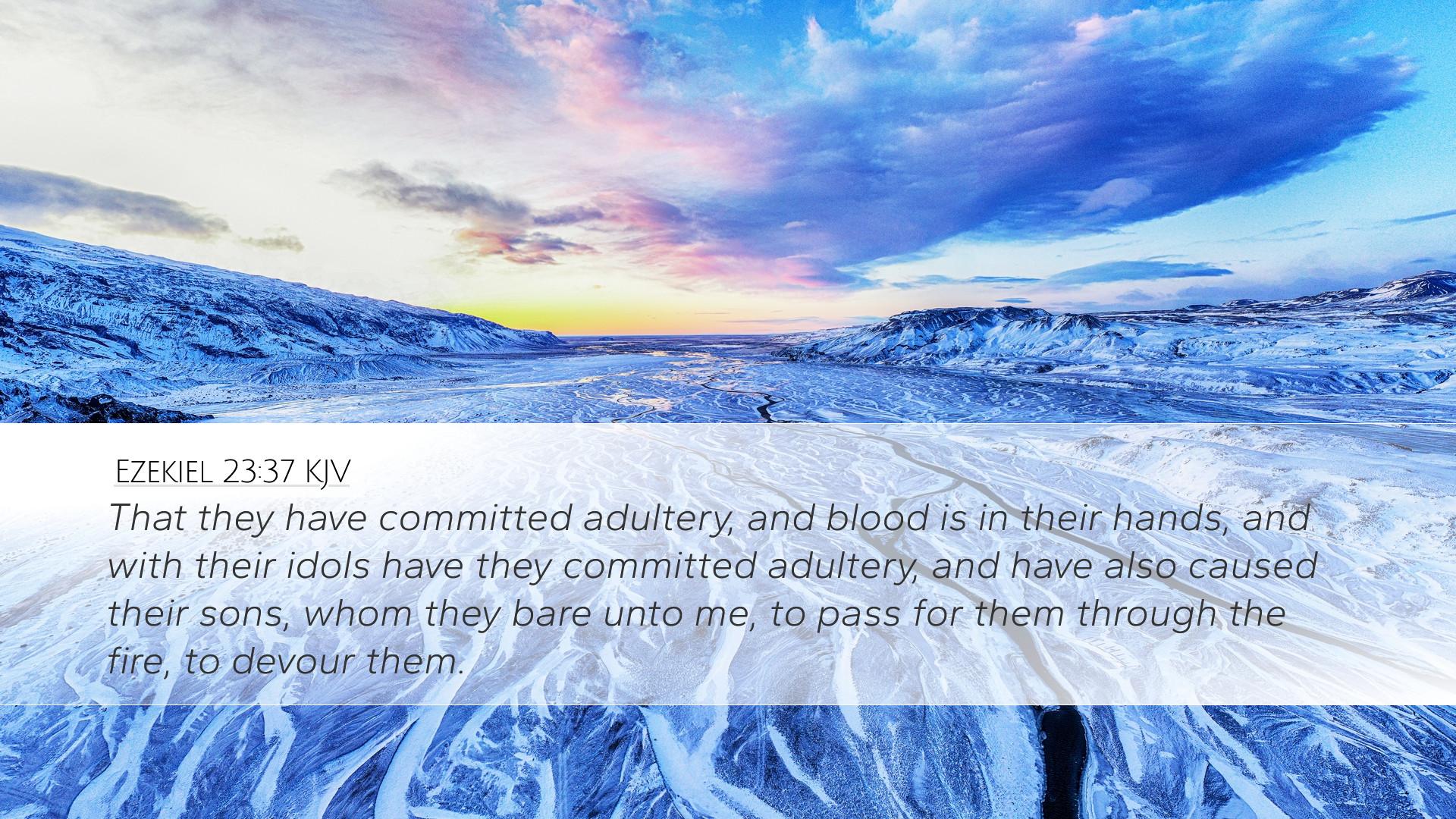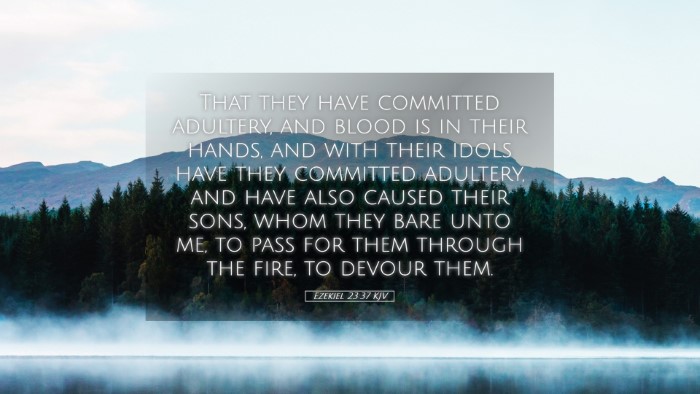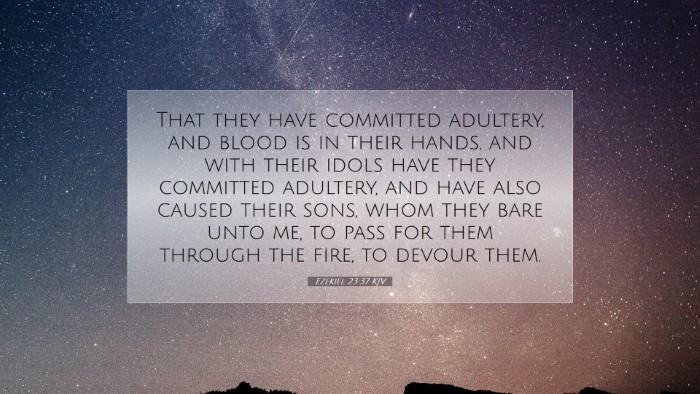Bible Commentary on Ezekiel 23:37
Ezekiel 23:37 (KJV): "That they have committed adultery, and blood is in their hands, and with their idols have they committed adultery, and have also caused their sons whom they bare unto me to pass for them through the fire, to devour them."
Introduction
This verse occurs within a vivid allegorical description of two sisters, Oholah and Oholibah, representing Samaria and Jerusalem, respectively. Ezekiel employs strong imagery to underscore the unfaithfulness of Israel and Judah to God. Through this commentary, we will explore the various dimensions of this verse as interpreted by notable public domain commentaries including those of Matthew Henry, Albert Barnes, and Adam Clarke.
Contextual Background
The context of Ezekiel 23 reveals God's deep sorrow regarding Israel's spiritual unfaithfulness. The prophet eloquently portrays the nations of Israel and Judah as wayward women betraying their covenant with God. This chapter serves not only as a reproval but also as a proclamation of judgment against idolatries and their horrific consequences.
Literary Structure
The portrayal consists of not only symbolic names but also a narrative that conveys the betrayal and resulting judgment faced by the unfaithful. Each sister's actions symbolize the deeper national and spiritual failures of Israel, highlighting the serious offenses against God’s covenant.
Insights from Commentaries
Matthew Henry
Matthew Henry emphasizes the gravity of spiritual adultery. He notes that the phrase "they have committed adultery" indicates a departure from God’s prescribed path, as Israel went after other gods—akin to a spouse breaking a marriage vow. His commentary stresses:
- Spiritual Infidelity: Henry underscores that the primary offense lies in turning away from God, whom the people of Israel were supposed to worship exclusively.
- Consequences of Sin: The consequences are dire, not only reflecting physical death but also spiritual death, implicating the community in sin.
- Idolatry as Adultery: He draws upon the image of idolatry as a form of unfaithfulness, comparing the worship of idols to marital infidelity.
Albert Barnes
Albert Barnes offers a theological exploration into the dual nature of sin in this verse. He points out:
- Blood is in their Hands: This phrase signifies the grievous sins of injustice and violence committed against the innocent, hinting at the moral decay within the nation.
- Passing Children Through the Fire: Barnes discusses the horrific practices including child sacrifice, elucidating how far Israel strayed from the ethics and morals that God commanded.
- Covenant Violation: He stresses that the verse underscores the dire breach of covenant, stating that such actions invoke God's judgment as a necessary response to persistent rebellion.
Adam Clarke
Adam Clarke provides a nuanced examination of the elements involved in the figurative language used in this verse:
- Idolatrous Practices: Clarke expounds on the role of false gods in Israel's community and the heinous acts of idolatry that accompanied them.
- Symbol of Fire: The imagery of passing children through fire represents both literal and figurative meanings—suggesting overall destruction tied to worship practices devoid of humanity.
- Call to Repentance: Clarke emphasizes that this passage serves as an urgent call to repentance, urging the Israelites to return to fidelity with their Creator.
Theological Implications
Each commentator highlights not just historical judgments but also the timeless message embedded within the verse. The indelible touch of sin, idolatry, and the resulting judgment resonate with today’s believers, offering valuable insight for pastors and theologians:
- Covenant Responsibility: The responsibility of God's people to remain faithful to their covenant obligations remains central to Christian theology.
- God's Holiness and Justice: The passage affirms God's unchanging holiness, demonstrating that rebellion against Him leads to severe consequences.
- Modern Applications of Idolatry: Contemporary believers are challenged to discern the modern forms of idolatry that can lead them away from true worship.
Conclusion
Ezekiel 23:37 serves as a relentless reminder of the perils of spiritual infidelity and the necessity of covenant faithfulness. The insights drawn from Matthew Henry, Albert Barnes, and Adam Clarke collectively emphasize a rich and nuanced understanding of idolatry's consequences. This commentary encourages deep reflection among pastors, students, and scholars, challenging them to remain vigilant in their devotion to God and the integrity of their communities.


